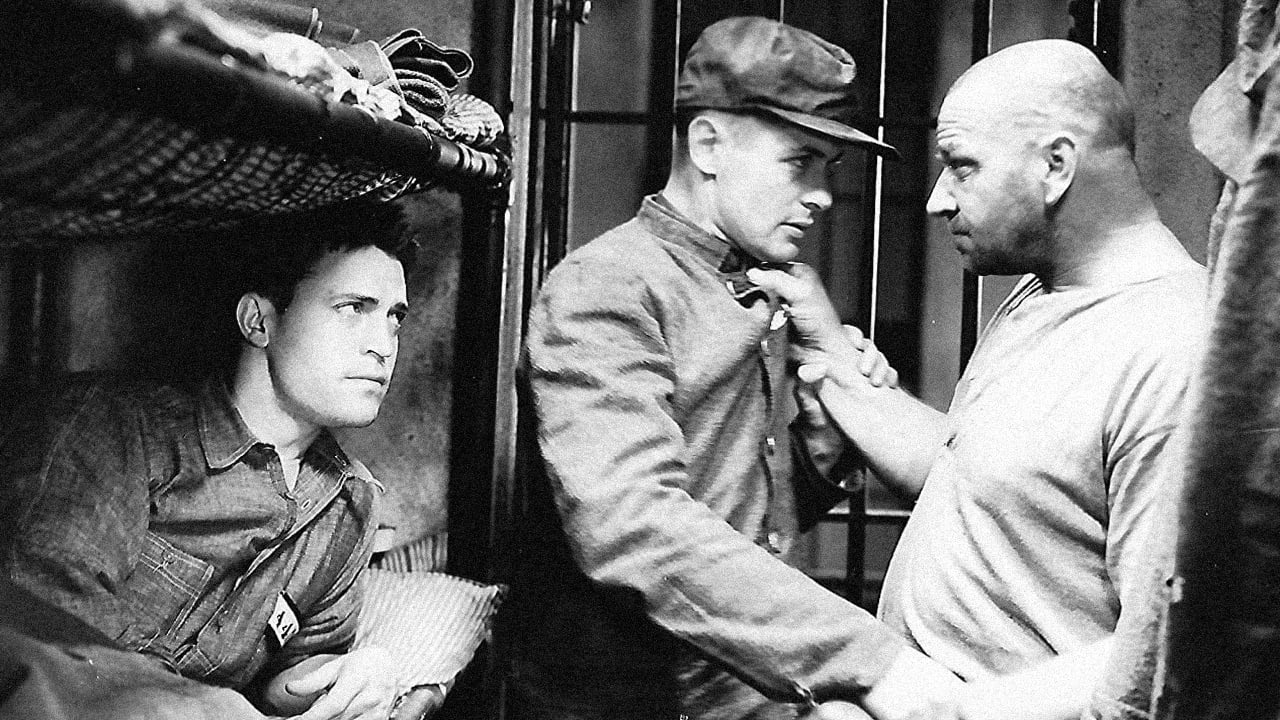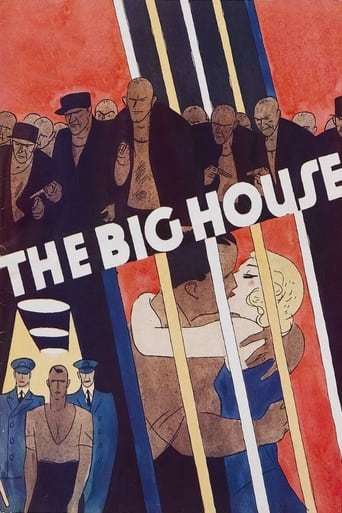MonsterPerfect
Good idea lost in the noise
Kidskycom
It's funny watching the elements come together in this complicated scam. On one hand, the set-up isn't quite as complex as it seems, but there's an easy sense of fun in every exchange.
ActuallyGlimmer
The best films of this genre always show a path and provide a takeaway for being a better person.
Yash Wade
Close shines in drama with strong language, adult themes.
Brandin Lindsey
The Big House is a 1930 crime-drama film, set in a prison. The story follows several inmates who are all willing to do anything to get out of jail. Whether it is cutting deals, informing on one another, or planning a breakout, each character is pushed to the limits of what a person is willing to do for freedom. As the story progresses, each character must ultimately face the consequences of whatever choice they make, which seems to be the moral of the film. The Big House is surprisingly sympathetic toward the flaws in the penal system and makes no attempt to hide the horrors of prison. The jail in the film is almost medieval at times with a dungeon for solitary confinement, roach-infested, rotten food, and three men to a closet-sized cell. The story is well-written and the acting is great, for the most part.The bad parts of the film mostly consists of the silliness, such as obviously fake punches, the phony tough-guy routine, and the cringe-worthy "Who...Me?" line that is repeated throughout. The comedy aspects of the film also fall flat, such as the cross-eyed stutter routine and the exaggerated wide-eyed stupidity role. These elements drag the film down.Overall, The Big House is worth watching. Honest, enjoyable, and intense, most viewers will have a lot of fun with this film. Despite a few flaws and bad comedy, the amazing prison scenery will keep you drawn to the screen.
evanston_dad
One of the earliest prison break movies and a Best Picture nominee from the 1929-30 award year at the Academy Awards."The Big House" suffers from lack of focus. Wallace Beery, as a hardened inmate, received the Best Actor Oscar nomination, but the film is really much more about Robert Montgomery, newly incarcerated and navigating the ins and outs of prison life, until it's no longer about him and is instead about Chester Morris, who escapes and falls in love with Montgomery's sister before being captured and sent back to the slammer. The film's money shot is a big shoot out at the end, during which all of the principal characters die. This grim, gritty stuff distinguishes the film as pre-Code, and it's the movie's pre-Code status that allows it to get away with the moral ambiguity in not really having good guys and bad guys and making the audience unsure of who it's supposed to be rooting for.Being an early sound film, "The Big House" is almost by definition uneven, since filmmakers were trying to figure out what movies should look and sound like with the addition of the new medium. But many clearly thought Douglas Shearer, brother of Norma and head of the MGM sound department at the time, handled sound well, as this film has the distinction of being the very first winner of the Sound Recording Oscar. Workhorse screenwriter Frances Marion also won an Oscar for Best Writing, in a year that saw her go up against the formidable competition of "All Quiet on the Western Front" no less.Grade: B
bkoganbing
Even after 77 years, The Big House is still the grand daddy of all prison films. Though films like Shawshank Redemption and a personal favorite of mine, Brubaker, with no Code restrictions can be a lot more graphic, still The Big House will shock as well as entertain.Wallace Beery got a Best Actor nomination for being hardened killer Butch Schmidt who's a lifer in the state penitentiary. He and cell mate Chester Morris have a new man in their little abode in the person of a young Robert Montgomery. Montgomery's only a kid, but he's done a man size crime of manslaughter in a vehicular homicide where he was no doubt good and sloshed on prohibition rotgut. Montgomery is a weakling in a place where that's not a good thing.All the clichés about prison films really do start here, culminating in the final crash-out where a whole lot of people get themselves killed. It's a scene well staged, very similar to the breakout in Brute Force.As the story progresses you'll see plot elements from Brute Force and from Warner Brothers Each Dawn I Die. The cast does a marvelous job and that also includes Lewis Stone as a Judge Hardy like warden.If you like prison films, this one's the grand daddy of them all.
angelcitygal
I saw "The Big House" last night as part of Turner Classic Movies' tribute to Frances Marion, the great female screenwriter. Marion became the first woman to win an Academy Award for screenwriting for her work on this film."The Big House" is a fascinating character study, showing how three very different men deal with being imprisoned. Butch (Wallace Beery) lords over all of the men with a knife and threats of violence. John Morgan (Chester Morris) is smart enough to befriend Butch and his crew, but keeps his own set of values. Newcomer Kent Marlowe (Robert Montgomery) is terrified of prison and eventually turns "rat" in hopes of being released.The film also infers that the public at large is partly to blame for the discontent (and eventual unrest) within the prison: at one moment, the head warden says something to the effect of the public wanting to put criminals in prison, but not wanting to spend the money to build more prisons to accommodate them. This is issue is still debated to this day.I also found the portrayal of the lone female character, Anne Marlowe (Kent's sister, played by Leila Hyams), very refreshing and unexpected. Instead of the crying, simpering type we might expect in a prison movie, we are given a smart and compassionate woman who owns her own business.All of the actors gave excellent, realistic performances and Frances Marion's screenplay was well-deserving of the accolades it received. The insight and sensitivity that she used to write about these characters and this place surpasses most of the scripts written by men on the same subject.

